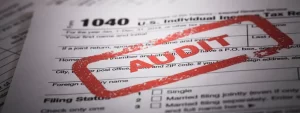What Is a Finance Lease?

A finance lease is a contract under which the lessee leases an asset from a finance company. The finance company retains legal ownership of the asset throughout the duration of the lease. In exchange, the lessee has operating control over the asset. This arrangement typically shares economic risks and returns associated with changes in the value of the underlying asset.
One advantage of a finance lease is the ability to depreciate the asset as it is used. In contrast, the lessee has to pay interest on the lease liability. The two types of lease arrangements have various advantages and disadvantages, and the right to choose the right one for your business can be critical. If you are considering a finance lease, make sure you understand its advantages and disadvantages.
A finance lease is a financial transaction similar to a traditional bank loan. The lessee borrows money from a lender and signs a note. They use the money to purchase equipment. They pledge the equipment to the lender as collateral. If the equipment is damaged or faulty, the company cannot withhold payments on the note and sue the lender. However, if the equipment is damaged or lost, the company is responsible for it.
Finance leases are a common way to finance an asset. The finance company owns the underlying asset during the term of the lease, and the lessee owns it at the end. The lessee also receives the right to purchase the asset at the end of the term. As long as the lessee is reasonably certain about its usage, a finance lease is a good option for financing your business.
Finance leases are common in many industries. When a business needs expensive equipment, it may use a finance lease to avoid paying a large lump sum. This method helps the business retain its cash flow while not incurring huge expenses. It also allows the business to benefit from tax benefits. The final payment is often less than the fair market value of the item when new.
A finance lease works similarly to a hire purchase arrangement. The lessee picks an asset and uses it in exchange for payments. The lessor recovers the asset’s cost, plus interest, and then gives the lessee the option to buy it at the end of the lease. This option often reduces the payment of the asset, and if the customer wants to sell it, he can keep the proceeds.
A finance lease also affects the balance sheet. Because it is capitalized, the lessee will have more assets than liabilities, and its debt and equity ratio will increase. The amount of interest and payments related to the finance lease will affect both the asset and liability value.







